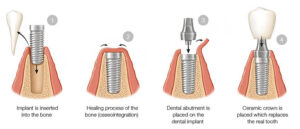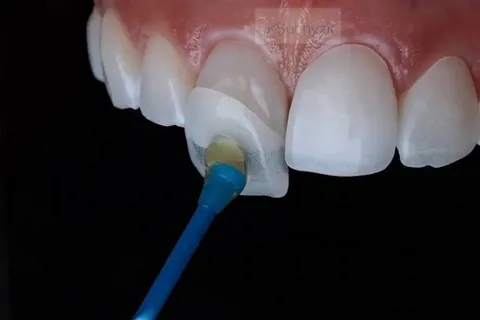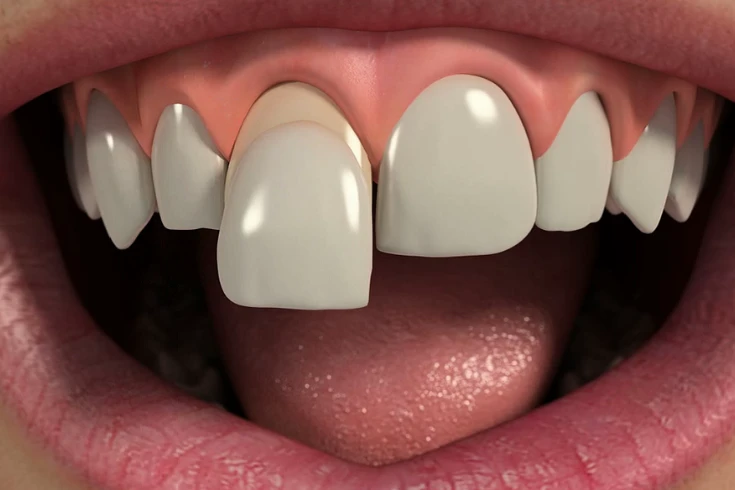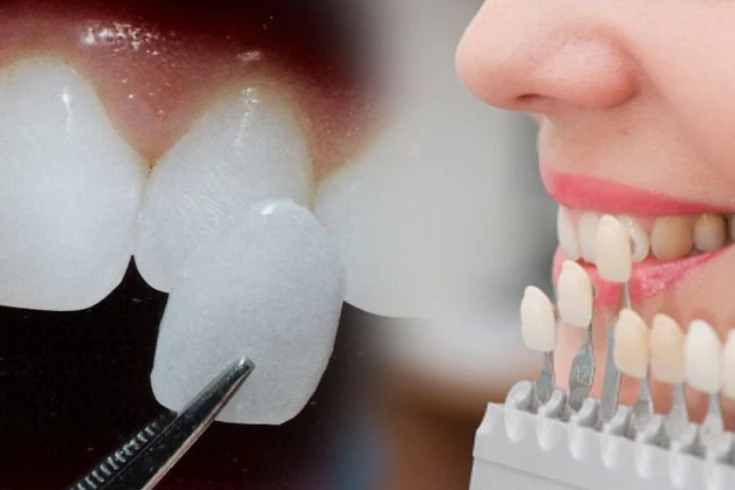What Are Dental Implants?
Who Are They For?
The suitable or good candidates for dental implants are:
- Missing Teeth: Implants replace one or more teeth with a natural-looking tooth that works just like a permanent one.
- Good Oral Health: The patients need to have healthy gums and sufficient bone in the jaw for the implant. The gum diseases or major loss of bones will affect the success of the implant.
- Alternative to dentures: Implants serve as an alternative to dentures, acting as more permanent and sustainable for such patients who may not be willing to use removable dentures or bridges.
- Good General Health: Dental implants require patients who are in the best of health because the surgery requires it. Diseases like uncontrolled diabetes or nicotine abuse are probably going to interfere with the body’s recovery process.
- Improved Function and Appearance: Dentures restore the function of chewing, speaking, and smiling with confidence due to their natural appearance and natural feel compared to other alternatives of tooth replacement.
The Dental Implant Surgery Process

dental Implant Surgery Process
Pre-Surgery Consultation
The consultation prior to the dental implant surgery is important, considering a general oral examination in general, review of past medical history, and X-rays or 3-D scans with regard to bone density assessment among other general aspects of dental health.
From here, the dentist will present a personalized plan in discussion, go through the implant options available, and provide an itemized quote of the costs besides noting any other extra procedures recommended, including bone grafting.
This is also a good time to review insurance coverage or financing options. This would also involve counseling about lifestyle factors such as quitting smoking or changing any medications you are currently taking, and thorough discussion of the risk and benefit regarding the dental implant. You would, in that way, be thoroughly informed and prepared for your eventual successful surgery.
Step-by-Step Procedure
Before you get dental implants there are several steps that you should follow before the surgical procedure begins. The steps that are included before getting the procedure are as follows:
Initial Examination and Planning:
The dental implant placement starts with the examination and planning. You can contact with the dentist where you can discuss the status of your tooth and the best implant option. The dentist will also examine the tooth’s health.
Bone Grafting (if required):
The dentist will start bone grafting if the patient’s jawbone is not thick enough to support the implant.
Implant Placement:
After the initial examination and bone grafting (if required), the dental implants are designed. Completing the design, the dentist placed the implant to replace the missing tooth.
Healing and Osseointegration:
Once the implant is placed, it will take some time to fuse with the jawbone. The time taken for the implant to fuse with jawbone is known as osseointegration.
Implant Abutment and Crown Placement:
Once the implant fuses with the jawbone a small connecter piece is attached around the implant which is known as implant abutment. The crown is placed after the gums are attached to the abutment.
Types of Dental Implants
Dental implants are artificial roots that are surgically positioned in the jawbone, providing a base for fixed or removable replacement teeth. There are two main types of dental implants: Endosteal Implants and Subperiosteal Implants.
Endosteal Implants:
These implants are surgically positioned in the jawbone. Because of this, the endosteal implant is the most popular form of dental implant. They act like the root of a missing tooth and provide a great foundation for artificial teeth through crowns or bridges.
Material composition, such as titanium or ceramic, further includes shapes that, like screws or cylinders, help in integrating endosteal implants into the bone.
More professional jargon calls it osseointegration, wherein, in simple terms, the implant is allowed to integrate with the jawbone over time, hence forming a very solid and comfortable platform from which the missing teeth should rest.
They are particularly ideal for those patients who possess adequate bone and healthy gums, considering that such is the most essential characteristic of holding the implant in place.
Subperiosteal Implants:
Subperiosteal implants involve the construction of implants when there is not enough density in the jawbone of a patient and bone grafting is not advisable.
Contrary to endosteal implants, they go under the gum tissues but rest on top of the jawbone instead of going inside it. A metal framework is contoured to fit over the bone, with posts extending from it that come through the gums to support artificial teeth.
This is often recommended for people who do not have enough height of bone for traditional implants but still wish to avoid dentures. Less invasive regarding bone interaction, subperiosteal implants provide a reasonably stable solution for replacing teeth in patients who have a particular deficiency in bony tissues, with generally improved functionality and aesthetics.
Advantages of Dental Implants
Dental implant dentistry is one of the best options for tooth replacement in today’s world. There are many benefits of dental implants. Some of the benefits of having dental implants are
- Improved aesthetic appearance: Dental implants improve the look and feel of your teeth, and they blend in beautifully with the rest of your smile to give you a more confident appearance.
- Improved Chewing and Speech: Unlike dentures, implants are stable and permit you to chew on foods and speak more comfortably without fearing slippage.
- Durability and Long Life: When properly maintained, dental implants last a lifetime. They offer a permanent alternative to conventional bridges and dentures.
- Bone Preservation and Supporting the Jaw Structure: Implants prevent bone loss by stimulating the jawbone. Additionally the dental implants provide support for your facial structure so your face will not sag.
- Confidence and Self-Esteem Boost: Self-Esteem and Confidence: Dental implants give back the look and function of natural teeth, and hence, a person can be more confident in social appearances. With a natural-looking smile, one is no longer worried about defects like gaps or ill-fitting dentures; therefore, smiling, speaking, and eating become quite free, which does much to improve self-esteem.
The Benefits of Choosing the Best Implant Dentist in New Jersey for Long-lasting Results
Risks and Potential Complications
The dental implants are generally successful, but like any other surgical or dental care procedure dental implants may not be successful.
Common Post-Surgery Issues:
The dental implant surgery is usually safe and does not have any issues later on. Though many of the people will not have any issues, some of them will have issues after they undergo implant surgery. Some of the issues that arise are:
Infection:
This is one of the most common risks after getting your implant surgery. Infection at the site of the implant can be developed if proper care and hygiene are not maintained.
Nerve Damage:
During the time of placing the implant, due to the proximity, the nerves surrounding the same might get damaged; this may result in numbness, tingling, or pain in the mouth, gums, or lips.
The permanent injury to these nerves is very rare.
Sinus Problems (Upper Jaw):
The problem of the sinus may also arise in the case of implants of the upper jaw in case the implant protrudes into the cavity of the sinus. Infections or discomfort of the sinus may also be caused.
Long-term Risks:
The long-term risks of the dental implants are:
- Implant Failure: The other sequel either to poor osseointegration-whereby the bone fails to integrate into the implant-is excessive stress on the implant.
It includes smokers, patients suffering from diseases of the gums, and uncontrolled diabetes. - Bone Loss: Bone loss can occur in the section surrounding the implant due to inadequate support upon placement or in conditions of failure. The loss of bone, in turn, causes gradual loss of stability of the implant over time.
Best Implant Dentist in California : Achieve a Perfect Smile with Expert Care
How to Minimize Risks
Dental implants are successful in many cases but not in every case. There are also some risks or disadvantages of dental implants. So, in order to minimize the risk of dental implants following steps should be followed.
- Selecting the best Dentist: Dental implants are a good solution for the missing tooth. But if the dentist you are getting the dental implant restorations is not experienced or skilled then the implant body may fall down or have issues.
- Maintaining good oral hygiene: Another way to minimize the risk is by maintaining your oral hygiene. You need to regularly brush your teeth, flossing. Regular dental visits too will help to maintain oral hygiene in order to preserve your implants. Talking to your dental experts will also help you to know about the condition of your implant’s health.
- Keep of risk factors: Smoking should also be avoided by the patient. Any underlined disease like diabetes, for example, should also be under control. Adding more pressure on the implant may also be avoided.
Insurance and Costs of Dental Implants
When it comes to replacing missing teeth with dental implants, understanding how much dental implants cost and insurance coverage for dental implants can make the process less overwhelming. Here’s a detailed guide on the subject:
Average Cost of Dental Implants
The types of implants, along with their average cost, are shown in the following table.
| Dental Implant Types | Cost |
| Single Tooth Implant | $1,500 – $6,000 |
| Multiple Tooth Implant | $3,000 – $30,000 |
| Full Mouth Implant (All-on-4) | $20,000 – $50,000 |
| All-on-6 Dental Implants | $30,000 – $60,000 |
| Mini Dental Implants | $500 – $1,500 per tooth |
| Implant-Supported Dentures | $15,000-$30,000 |
| Zygomatic Implants | $32,000 – $70,000 |
Does Insurance Cover Dental Implants?
- Dental Implant Insurance Coverage:
Most dental insurance plans classify dental implants as cosmetic and do not cover the cost of the implant. They may cover other dental procedure, such as the crown or replacement tooth that fits over the implant, or extraction of teeth to accommodate the new implant. More comprehensive implant coverage can be provided with higher-tiered dental plans; these should be discussed with the provider for specific benefits.
- Medical Insurance Cover:
Under certain circumstances, medical insurance may cover some Dental Implants if there is some underlying resulting loss of teeth because of an underlying illness or accident. If oral health issues like oral cancer or an injury need dental implants, then there is hope that medical insurance may cover it.
- Payment Plans and Financing Options:
Many dental offices have payment plans and financing available for the uninsured or underinsured. Types of payment plans may allow the patient to extend a procedure over a period of time.
There are also third-party financing companies that offer loans for medical and dental procedures. Often, minimal or no interest charges are incurred for this type of financing if it is paid within a certain period of time.
If you are looking to get a dental implant, you may first want to consider the dental and medical insurance that is good for you. You should also consider things like how much the insurance covers and how much you need to pay if the insurance does not cover the overall cost of the procedure.
Tips for Navigating Insurance Policies
When selecting or navigating the insurance policy you should choose the insurance policy that suits you the most. The tips for navigating insurance policy are as follows:
- Review the details of your plan: Check the annual maximum limit, the waiting periods, and the percentage covered for different procedures.
- Pre-authenticate your insurance: Many times, before treatment, pre-authenticate your insurance to see exactly what is covered under your insurance.
- Alternative to implants: If implant procedures are only partially covered, consult for less expensive alternatives that may be partially covered, such as bridges or dentures.
- Ask your dentist: Many are able to explain the confusing insurance terms and even help with the paperwork involved in claims and preapprovals.
- Second opinion: Another dentist may have a different opinion regarding how to perform something, which could be less expensive under your insurance.
Alternatives to Dental Implants
Dental Bridges
Dental bridges are made of one or more false teeth, called pontics, which are attached to adjacent natural teeth or crowns. A bridge over the gap of missing teeth is therefore formed. Bridges usually tend to be less expensive and quicker to install than dental implants and do not require surgery. However, they require reshaping the healthy adjacent teeth to hold the bridge in place, therefore weakening them. Bridges also do not prevent bone loss in the jaw, which can occur over time in the area where the tooth is missing.
Dentures
Dentures are prosthetic appliances that are individually fabricated to replace lost teeth and their enveloping tissues. There are two varieties: complete, which replace all teeth in either the upper or lower jaw; and partial, which replace only some missing teeth and are attached to natural teeth by clasps. While dentures are relatively inexpensive and easier to modify and replace, they may be highly uncomfortable and one may have to continue making adjustments to be able to wear them. Because they are simply placed on top of the gums, they also do not have any effect on the jawbone itself and may indeed result in some bone loss over a period of time.
Pros and Cons of Alternatives
| Alternatives | Pros | Cons |
| Dental Bridges | Less expensive, faster, non-surgical | May weaken adjacent teeth, doesn’t prevent bone loss |
| Dentures | Affordable, non-invasive, removable | Can cause discomfort, requires maintenance, may affect chewing/speech |
Conclusion
Dental Implants provide a physically durable and aesthetically pleasing solution, as dental implants cosmetically improve one’s image or functionally enhance an individual’s chewing ability by melding with the jawbone. However, the pros in the improvement of chewing, speech, and self-esteem have to be weighed against the risks, which include infection, nerve damage, and implant failure. Other options, such as dental bridges and dentures, are less expensive and less invasive.
However they do not halt the bone loss process, and they are not as secure. Insurance may cover implants. Most plans view implants as cosmetic. Still some medical policies pay for part of the cost if conditions warrant it. Payment plans and insurance package details will help soften the economic burden. Nonetheless, dental implants always tend to be in the lead for many by offering long-term benefits and a semblance of being natural but a choice has to be made upon the requirement of the individual, the health status, and the budget.





